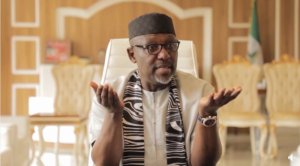
President Bola Tinubu has decided not to withdraw four tax reform bills currently before the National Assembly, despite recommendations from the National Economic Council (NEC) for more consultation. Tinubu argues that the legislative process allows ample opportunity for public input and revisions, which can address concerns raised by various stakeholders.
The NEC, led by Vice President Kashim Shettima and comprising 36 state governors, proposed withdrawing the bills to allow for further discussion. According to Oyo State Governor Seyi Makinde, some regions, particularly in the North, have expressed reservations about specific sections, notably the proposed derivation-based model for Value-Added Tax (VAT) distribution.
The bills, developed by the Taiwo Oyedele-led tax reform committee, aim to simplify Nigeria’s complex tax system, consolidate overlapping tax authorities, and align the nation’s tax framework with global standards. Key aspects of the reforms include:
- Nigeria Tax Bill: Streamlines tax obligations for businesses and eliminates excessive multiple taxation.
- Nigeria Tax Administration Bill: Creates consistent tax rules across federal, state, and local levels to improve compliance.
- Nigeria Revenue Service (Establishment) Bill: Renames the Federal Inland Revenue Service to reflect a broader, national tax mandate.
- Joint Revenue Board Establishment Bill: Replaces the existing Joint Tax Board with a new agency and introduces an Office of Tax Ombudsman to assist taxpayers.
In a statement, Tinubu’s Special Adviser on Information and Strategy, Bayo Onanuga, affirmed that the President respects the NEC’s advisory role but believes halting the process would delay essential improvements to Nigeria’s tax system. Tinubu also welcomes further dialogue with stakeholders, emphasizing that input from diverse groups, including trade associations, state governments, and the private sector, will be included as the legislative review continues.
The Arewa Think Tank, a northern advocacy group, has voiced support for the reforms, clarifying that the new VAT model would create a more equitable distribution system benefiting all regions. The group also dismissed claims that the tax reforms are disadvantageous to the North, pointing to projects such as the Maradi-Kano railway and increased funding for northern education initiatives as evidence of Tinubu’s balanced approach to development.
While the tax reform bills face regional concerns, Tinubu remains committed to advancing them through legislative processes, which he believes are best suited for refining and enacting the reforms in a way that serves Nigeria’s collective economic interests.






Be First to Comment